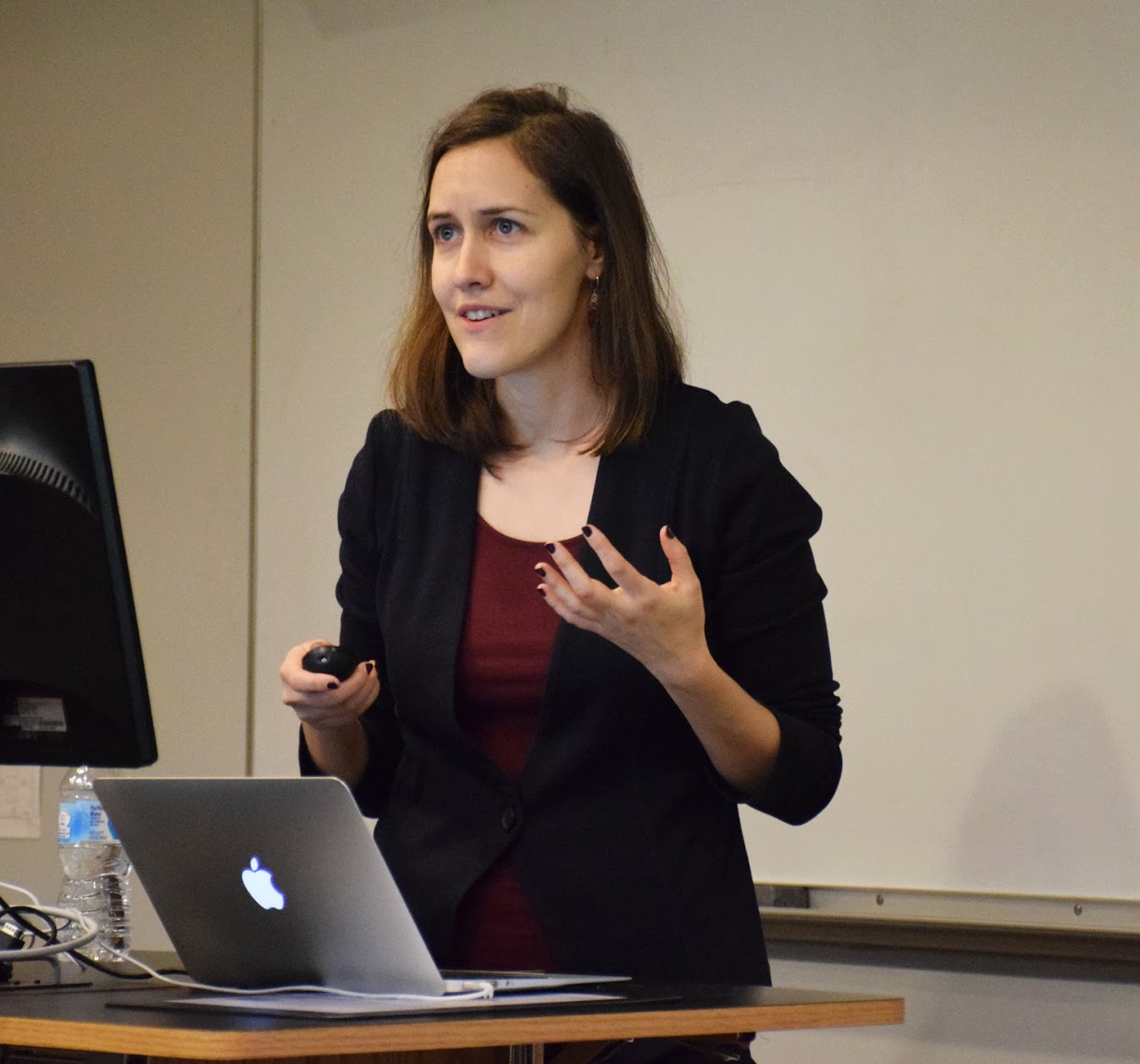Faculty Spotlight: Julia Behrman
Taking a Global Perspective on the Family
Get all our news
I am trying to expand to a global perspective and also bring some of the literatures from low-income and high-income countries together to expand the knowledge base of what we do actually know.”

IPR sociologist Julia Behrman got hooked on Africa when she conducted research in Senegal as an undergraduate looking at reproductive health services in 2005. The continent’s rich history and culture—not to mention its great music and food—fueled her desire to learn more.
“After college, I wanted to find a way to go back to Africa,” Behrman said. “Once I started traveling to countries, part of the interest was understanding how different the different places are—differences that often get erased in popular representations of sub-Saharan Africa.”
She returned after receiving her BA in sociology and continued to delve into gender issues. She worked for the World Bank in Malawi and then earned a master’s in development at the London School of Economics. After a stint with a policy research organization that took her to Burkina Faso, Tanzania, and Uganda, as well as Bangladesh, Behrman completed her PhD in sociology from New York University in 2017.
Her research interests have led her back to Africa to investigate shifts in women’s roles when they become more educated, global trends in family change, and how migration affects the size of families and when they have children.
Schooling, Gender, and Family
Behrman’s dissertation research focused on changes in women’s status and family dynamics in East Africa, where governments rapidly increased schooling for girls. She wanted to understand what happens inside families when women attend school at similar rates to men. In particular, she examined how and why fertility and family outcomes might change with education, even as women’s economic, social, and political status remained unchanged.
When women spend more time in school, it plays a big role in bringing down fertility rates, according to most demographic scholarship. Yet Behrman observed first-hand the poor quality of the schools, making her wonder how education could affect women.
“When you actually visit schools, they're 70 kids in a classroom, and the conditions aren't great,” she recalled.
How do such schools bring about profound change? “It's trying to understand those mechanisms that was interesting to me,” she said.
Behrman studied the impact of women obtaining an equal or better level of education as their husbands on the rate of domestic violence in four African nations. She found that women’s rising education levels in Kenya, Uganda, and Zimbabwe led to increased violence against them. She suggests that the mechanism lies in men feeling their traditionally dominant role in the family under attack. In Malawi, with a heritage of strong matrilineal culture, there were fewer reports of domestic violence because of differing social rules.
“In the U.S., we might directly link education to labor market outcomes,” she explained, “but the role of changing norms, ideas, and aspirations and how exposure to media or global norms through institutions such as school could be important for changes in the family.”
Global Trends in Family Change
Behrman is also exploring big-picture questions about why and how families are changing around the world. What factors, such as women’s employment or migration, lead to family change? How do social norms about men’s and women’s roles in families spread?
In a working paper, Behrman and two Oxford colleagues trace changing ideas about male dominance within the family in 28 countries in sub-Saharan Africa. They focus on men’s decision-making about their wives’ health as a measure of women’s status inside the family.
Mapping husbands’ dominance in decision-making about women’s health and education at the national and local levels over about a decade, the researchers find that although on average men’s dominance declined, there is large variation between, and even within, countries.
Behrman noted that tracking trends in family dynamics in sub-Saharan Africa contributes to building a more complete picture of gender norms and behaviors throughout the world—not just in developed countries.
“I am trying to expand to a global perspective and also bring some of the literatures from low-income and high-income countries together to expand the knowledge base of what we do actually know,” she said.
Migration and Family Change
Behrman is the lead investigator of a project supported by the National Science Foundation that compares the fertility of African and Asian women who migrated to France to similar women who remained in their home countries. The research differs from previous work, which instead contrasted migrants’ fertility to that of natives of their receiving country.
“When you compare migrants to French women, it looks like their fertility is much higher than the average, but when you compare them to women from their home countries, it’s actually much lower,” she said. “It challenges this idea that there’s not assimilation going on in the first generation.”
She has broader concerns with policy implications that have sharpened during her time at IPR and its interdisciplinary community.
In France, Behrman points out, there is a right to healthcare for migrants, but in the U.S., there is not. How does differing access to healthcare, especially to reproductive healthcare, affect migrants? What is the role of healthcare policy?
“I want to interject more of this sort of policy orientation, the reproductive healthcare angle, into the demographic debates about migration and fertility,” she said.
Julia Behrman is assistant professor of sociology and IPR fellow.
Photo by Christen Gall.
Published: October 24, 2019.


